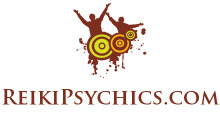You may have heard of Reiki. It is the practice of transferring every by the laying on of hands. It is known to be used for relaxation and wellness. It can reduce stress and pain. It also has healing effects for a wide variety of ailments.
The origins of Reiki go back to ancient Eastern texts. The name springs s from the word for universal life- Rei and the word for energy-Ki.
In a Reiki session the client lies down and the healer places their hands above the area being healed. They will hold their hands over the spot for several minutes. This allows for the transfer of energy which allows for the healing.
There are many training programs for Reiki and several of them are held in hospitals. Although there is no such thing as a license to practice Reiki, there are those who have been practicing and training in Reiki for several years.
Research has shown that Reiki has many benefits. Reiki has relieved pain and anxiety as well as depression. The reason that so few people hold credence in Reiki is because there hasn’t been an extensive study with a control group. Thus leaving room for the observation that some of the benefits of Reiki are also found in the comfort of touch and a relaxation response.
Some say the power of Reiki is due to a placebo effect. The evidence leans towards Reiki when it has been tried on cancer patients. A traditional placebo and some medications have proven ineffective, yet Reiki did reduce pain.
Reiki can create a sense of relaxation just as massage, art and music therapy and other so called alternative practices. A major factor in the success of Reiki comes from the patient themselves. If the patient believes they are going to get relief, they will. This shows the power of positive thinking. Since there have been no reported and proven examples of Reiki having a negative effect, there is no real harm in trying it. However, do not use it in the place of regular medical care. Reiki can help you relax and reduce your stress.


The historical origins of Reiki are intriguing, especially its links to ancient Eastern texts. It makes me wonder how these practices have evolved over time.
Yes, it’s fascinating to see how ancient traditions continue to influence modern holistic practices.
The lack of extensive scientific studies with control groups makes it difficult to fully endorse Reiki. However, the positive anecdotal reports are compelling.
It is important to differentiate between the potential placebo effect and actual therapeutic benefits. More rigorous research could shed light on this distinction.
The mention of Reiki being used in hospitals is quite interesting. It implies a level of acceptance in medical settings, even without formal licensing.
Given the absence of negative side effects and some positive reports, trying Reiki as a complementary practice seems reasonable. However, it should not replace conventional medical treatments.
Agreed. It’s important to balance alternative therapies with proven medical care for comprehensive health management.
Reiki’s effectiveness seems to depend significantly on the patient’s belief in its efficacy. This aligns with the broader concept of the power of positive thinking.